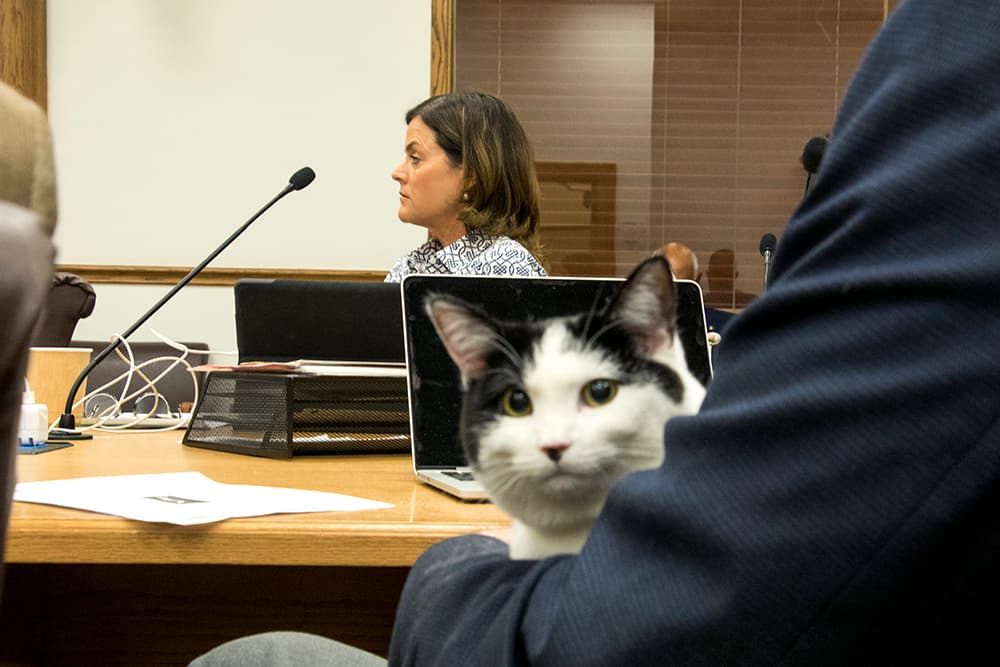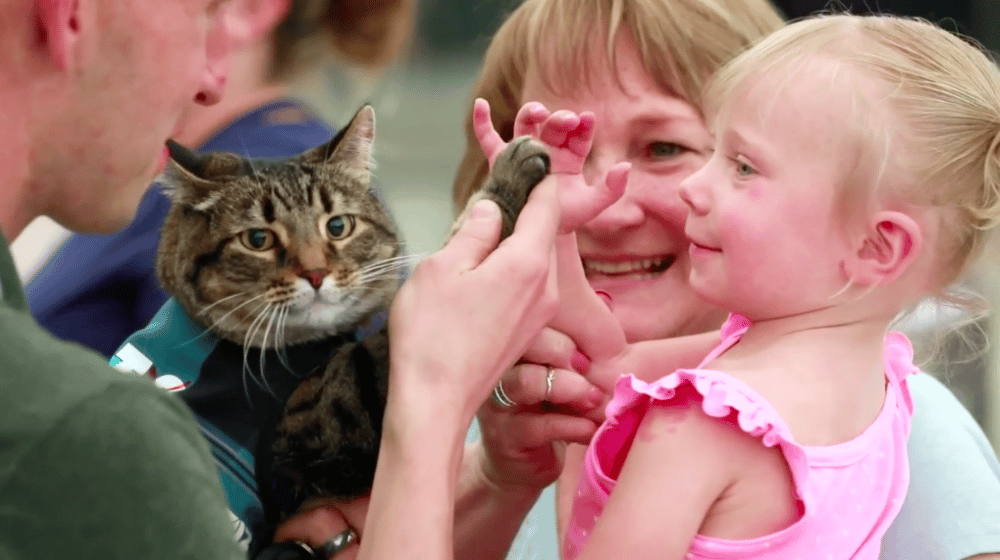Update: The ban passed unanimously on Nov. 13.
The Denver City Council on Monday night moved to make Denver the first U.S. city outside of California to ban the practice of removing cats' claws. Council members voted unanimously in favor of the proposal at its first reading, all but guaranteeing its passage.
The ban would make it illegal to declaw cats if there isn't a specific medical reason, such as a tumor or a malformed paw. Supporters of the ban said the procedure is the same as amputation, but some medical professionals said that the decision should be left to doctors and cat owners.
The maximum fine for violating the proposed ban would be $999, and jail time is possible but unlikely, according to city staff. It could go into effect by the end of the year.
The meeting drew stories about the operation.
The council heard from one woman who said that she was wracked by regret after putting a cat through the operation.
"I didn’t know the true extent of the harm that was in store for Boo. I didn’t fully appreciate the proceeding or understand that declawing was an amputation," she said. "Boo died six years ago, but I am still haunted by decision to mutilate the paws of my sweet, healthy cat."
Kirsten Butler, a veterinary professional, said that she was horrified by the declaw surgeries she witnessed.
"It is an awkward and unpleasant feeling to keep something alive while it’s mutilated in front of you," she said.
Declawing involves the removal not just of the claw but of the outermost phalanx of the paw from which it grows. Supporters of the ban claim that declawing makes cats more likely to bite, since they can't use their paws for defense.
M.A. Windecker II said that he had lost part of his own toe as a volunteer in combat against the Islamic State. He took home a cat from the battlefield, he said, adding that his love for the feline had compelled him to speak.
"Abu is my son. I love him. He is an American, and he raises hell, but he is my child. And for you to sit there and not stop his butcherism would be a travesty," he said.

Denver would be one of just a few cities to ban the practice.
Jennifer Conrad of The Paw Project spoke in favor of the ban. Over the course of 20 years, she has convinced several cities in California, including Los Angeles, to ban the practice. Several states where similar bills are under consideration were watching Denver's actions, she said.
However, some veterinarians have come out against the ban, saying it's a decision best left for doctors and clients.
"A veterinarian acts as an advocate of both the animal and the animal’s human handler," said Casara Andre. She said that modern technology could minimize pain and that the operation could keep cats in homes.
Members of the Colorado Veterinary Medical Association generally oppose the idea of a ban, even though they said they also oppose the practice of declawing.
Association President Will French said that some owners may euthanize a cat if declawing is not an option. He compared it to abortion -- "a choice to be made between a doctor and a patient."
Critics of the ban have asked whether people will give up their cats instead. However, cities that have instituted the ban have reported reduced rates of relinquishment.













